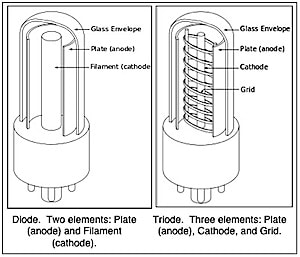Last week we discussed alternobaric vertigo, and I used two examples: One common (a diver descending or ascending in water), and one unusual (pressure from a CPAP machine). Another common cause of sudden changes in middle ear pressure is descending in a plane. Have you noticed that the babies on the plane start crying in the last 20 minutes before landing? That is because babies have less efficient eustachian tube function than adults.
Dr. Mark Loury of Fort Collins, Colorado describes the process well:
A person starts at a higher elevation and then begins to descend without swallowing, as the lower barometric pressure behind the eardrum stays the same, then the pressure on the outside of the eardrum is increasing. This creates a relative vacuum behind the eardrum. This becomes equivalent to sucking on a straw, with collapse of the straw side wall. If swallowing occurs before this relative vacuum becomes too great, then the collapsed eustachian tube will then open, with equalization of pressure across the eardrum. However, if swallowing occurs too late, then the vacuum behind the eardrum will keep the eustachian tube walls collapsed and in touch with each other; and as descent continues, this wall-to-wall contact becomes more and more firm. If the vacuum continues to increase, then ear pain can occur, and fluid can be sucked out of the membrane lining the middle ear, with the result that bloody plasma fluid then fills the space behind the eardrum. This can be severe enough that membrane structures inside the inner ear can rupture, with resultant deafness or vertigo
Vertigo is one consequence of sudden changes, or inability to equalize pressure between the two ears. The far more common problem doesn’t necessarily cause vertigo, and doesn’t necessarily involve both ears. When one of the ears does not equalize pressure, the most common consequence is ear pain. When the pressure is extreme, the ear can suffer lasting injury known as barotrauma.
A number of different injuries can occur as a result of this extreme pressure differential. Related injuries include tympanic membrane perforation (ruptured eardrum), hemotympanum (a ruptured blood vessel in the eardrum), perilymph fistula (an abnormal opening between the middle and inner ear), intra-labyrinthine membrane tear (an abnormal opening between the different inner ear fluids that are normally separated by a membrane).
Photo courtesy of entspecialty.com








A couple weeks ago I was going to fly to visit my aging mother. I suddenly lost most of my hearing about 3 years ago. Flying has become extremely painful lately. I went to my DR. a couple days before because of an allergy. She looked in my ears and strongly suggested I did not fly. She said a tube was plugged and I would never be able to bear the pain. I lost some hearing from flying a couple years ago and did not want to take the chance. It was a long 2 day drive for my husband and I. It’s so difficult though, we’re 62 yrs and have family in 2 different states which really require flying. Thank you for this article. It confirms everything I’ve been told. My family does not believe it. But they’re my ears!